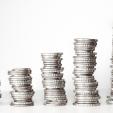Tiny Housing Bubbles
Recently I searched the Thoughts from the Frontline archives to see how often I used the word “bubble.” It was more than I thought, and I wasn’t quoting Don Ho. The bubbles I talked about were anything but tiny. Most of them subsequently popped, too.
For most people, buying a home is the biggest single purchase they ever make. It continues to represent the largest part of their net worth. It is also the most leverage most people ever take on. The risk of loss is very high if you have little equity in the home and need to sell it.
Housing has other effects on the economy, too. Booming home values contribute to a “wealth effect” that increases consumer confidence, making people spend more freely. Some homeowners tap their equity to finance other purchases. Some of it finds its way into the stock market. The industries that feed on all this—construction, building materials, mortgages, title companies, real estate agents, etc.—are huge employers.
All of which says the housing sector is far more important than many realize. They notice only when it falls apart. Today home prices are being compared to the pre-2008 period, which was clearly a bubble that ended painfully for many. Are we setting up for the same again?
I don’t think so. Yes, the housing market is a bit overheated, but for reasons that make far more sense than the rationalizations of stock market bulls. Some buyers are certainly overpaying and may regret it. Nonetheless, I don’t foresee another 2008-style housing crash in the near future, nor anything like the subprime crisis. There are altogether different fundamentals working here.
Manic Behavior
Let’s start with the obvious: The single-family home market is crazy hot right now. Many Americans want to relocate, for various reasons, and they outnumber the quantity of homes for sale. No surprise, the market responds with higher prices—sometimes far higher than seems justifiable.
On the other hand, basic economics says the “fair” price is the intersection of the amount the marginal buyer is willing to pay, and the amount the seller is willing to accept. Whatever the rest of us think isn’t part of that equation. It is somewhat murkier in housing because every product is one of a kind, based on its location, size, condition, and so on. Houses aren’t like shares of a company’s stock, all of which have identical characteristics and thus identical value.
But in the current atmosphere, some houses are selling in a kind of frenzy that resembles a crazy day in the stock market. Here’s one example, via Business Insider.
A California home received 122 offers in a single weekend amid a skyrocketing US real estate market.
The 1,400-square-foot home—located in Citrus Heights, California, a suburb of Sacramento—was listed at $399,900. It spans 1,400 square feet and has three bedrooms, two bathrooms, and a swimming pool, according to a report from KTXL, the local Fox affiliate.
The house received 122 offers in two days, including one above $500,000, and has since been sold for an undisclosed amount—KTXL reports the selling price was "in the mid-$400,000 range."
If you’ve ever sold your home and waited weeks (I’ve had to wait months before) to get even one offer, the thought of 122 offers in two days is hard to process. I would probably be kicking myself for not asking even more. But this is happening all over the US.
The pandemic and its associated fear triggered a frenzy, at first with wealthy city-dwellers wanting to get away from the same crowds that attracted them to urban life. Then, as companies let more of their staff work from home, people realized they could now live far from the office, in whatever location suited their desires. So, we have a kind of giant card-shuffling underway as millions reorganize their lives.
This will end, but for now it’s a flurry of activity. Some people are making mistakes in their haste. They buy houses requiring unanticipated repairs, or they move someplace that seemed nice then find it lacks what they wanted. That is unfortunately what happens when you get in a hurry. It’s unpleasant and maybe expensive for those affected, but the systemic effects probably aren’t great. Damage to the person who overpaid is offset by extra spending from the seller who got a windfall.
The bigger problem occurs when this activity sets up a price correction big enough to trigger a “negative wealth effect” that reduces consumer spending. Is that likely? Dave Rosenberg thinks so. These charts are from his March 31 morning letter.



Source: Haver Analytics & Rosenberg Research
Dave notes that all ratios are mean-reverting, and extremes like these tend not to continue. He went on:
If the home price to CPI, to rent and to wage ratios ever did mean revert, which Bob Farrell’s Rule #1 says they will, we would be talking about a 20% decline in average home prices nationwide. Maybe the catalyst will come from bond yields to mortgage rates, as was the case the last time around. Remember—the home price erosion was happening as oil prices made their move above $100 per barrel and were on the way to a $150 per barrel peak. You tell me which of the two price movements exerted a more dramatic and lasting impact on the economy, inflation, and the markets.
The US household sector is exposed to residential real estate to the tune of $32 trillion. Tracing through the negative wealth effect on spending would shave $400 billion, or close to 3%, from consumption right there (and cut by half the stimulus right now being directed to the personal sector—the thing is, any mean-reversion here on residential real estate would have far more lasting effects than the short-term fiscal relief, which has little more than a three-month shelf life).
Is that kind of price correction likely? Maybe. But there’s more to this story. And while I agree that mean reversion is a real phenomenon, the data that we are going to examine suggests it may take quite some time for that mean reversion to come about, and may not be as dramatic as if it were all that happened in 2021/22.
Shrinking Inventory
When I write about specialized topics like real estate, I look for experts. Fortunately, I know quite a few of them, and no one knows more about housing and mortgages than Barry and Dan Habib of MBS Highway. (Definitely check it out if you are in that industry.) I first met Barry around 2006, and he became part of my regular New York dinner crowd. And he quickly became my go-to source on housing market questions. He is a three-time winner of the Zillow/Pulsenomics Crystal Ball, awarded to the most accurate real estate trend forecaster, with three out of the last five years and the last two in a row. Barry and Dan know this market cold.
So, this week we had a phone call, which turned into a Zoom call so we could go through a dizzying array of charts. The amount of data they track is staggering. Even more impressive is the way they can distill it into useful conclusions.
The bottom line is this: Looking at big-picture supply and demand factors, this housing bubble isn’t a bubble at all. Yes, it’s overheated in some places, but housing trends move in slow-motion compared to stocks. That makes it critical to look at long-term data and ignore the monthly/quarterly noise.
The first thing Barry explained is that housing “supply” isn’t the number of houses, but the number of houses for sale. When that number is low relative to the number of prospective buyers, prices rise.
You might think the US, being a dynamic if slow-growing economy the last decade, would have plenty of homes available. Not so. Inventory has actually been dropping for years.

Source: MBS Highway
The single-family home for sale inventory peaked in 2007 and has fallen sharply since then, despite a growing population and economy. Other things being equal, that alone would probably push prices much higher. But all else wasn’t equal. In early 2020 the world went upside down as the pandemic struck and much of the economy came to a near standstill. In many places, that included home construction.
*********


















